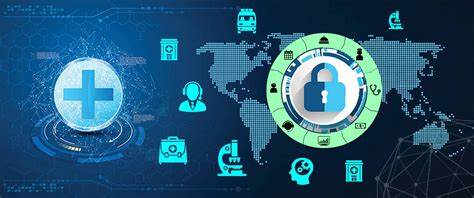In the healthcare industry, data security is of utmost importance. Medical data is highly sensitive, containing personal and confidential information about patients. As healthcare organizations increasingly rely on digital systems to manage medical data, ensuring its security has become a critical priority. Here’s why security in medical data management is essential:
1. Protecting Patient Privacy
The primary concern in medical data management is the protection of patient privacy. Medical records contain sensitive information such as medical history, diagnoses, treatment plans, and personal identification details. Unauthorized access or exposure of this information can lead to significant harm, including identity theft and discrimination. Ensuring robust security measures helps protect patient privacy and maintain trust in healthcare providers.
2. Complying with Regulations
Healthcare organizations are subject to strict regulations that govern the handling of medical data. Regulations such as the Health Insurance Portability and Accountability Act (HIPAA) in the United States set stringent standards for the protection of health information. Non-compliance can result in severe penalties and legal consequences. Implementing strong security protocols ensures compliance with these regulations and protects organizations from potential legal issues.
3. Preventing Data Breaches
Data breaches in the healthcare sector can have devastating consequences. They can lead to the loss or theft of sensitive information, disrupt healthcare operations, and cause financial and reputational damage. By implementing robust security measures, healthcare organizations can prevent data breaches and protect against external threats such as hacking and malware attacks.
4. Ensuring Data Integrity
Maintaining the integrity of medical data is crucial for providing accurate diagnoses and effective treatment plans. Data tampering or corruption can lead to incorrect medical decisions, endangering patient safety. Security measures such as data encryption, access controls, and audit trails help ensure that medical data remains accurate, complete, and trustworthy.
5. Facilitating Secure Data Sharing
The ability to securely share medical data among healthcare providers is essential for coordinated care and improved patient outcomes. Security measures ensure that data can be shared safely, protecting it from unauthorized access during transmission. Secure data sharing enhances collaboration among healthcare professionals and enables seamless transitions of care for patients.
6. Building Patient Trust
Patients need to trust that their healthcare providers will safeguard their personal information. Strong security measures demonstrate a commitment to patient privacy and data protection, fostering trust between patients and healthcare providers. This trust is essential for encouraging patients to share accurate and complete information, which is vital for delivering high-quality care.
7. Supporting Technological Advancements
As healthcare organizations adopt new technologies such as electronic health records (EHRs), telemedicine, and wearable health devices, ensuring data security becomes even more critical. Secure data management supports the safe implementation of these technologies, enabling healthcare organizations to leverage innovations that improve patient care and operational efficiency.
Conclusion
The importance of security in medical data management cannot be overstated. By implementing robust security measures, healthcare organizations can protect patient privacy, comply with regulations, prevent data breaches, and maintain data integrity. Prioritizing data security not only safeguards sensitive information but also builds trust with patients and supports the adoption of advanced healthcare technologies.

